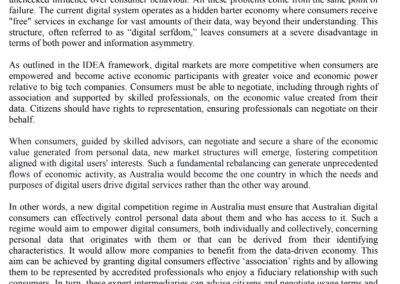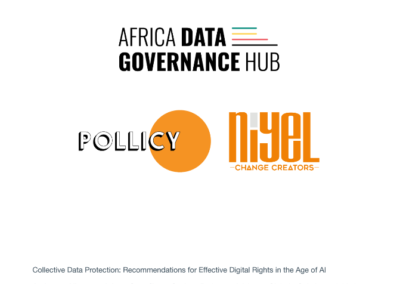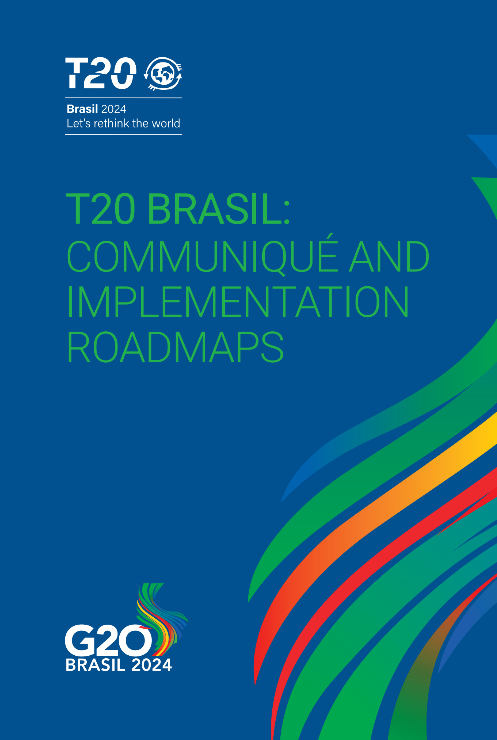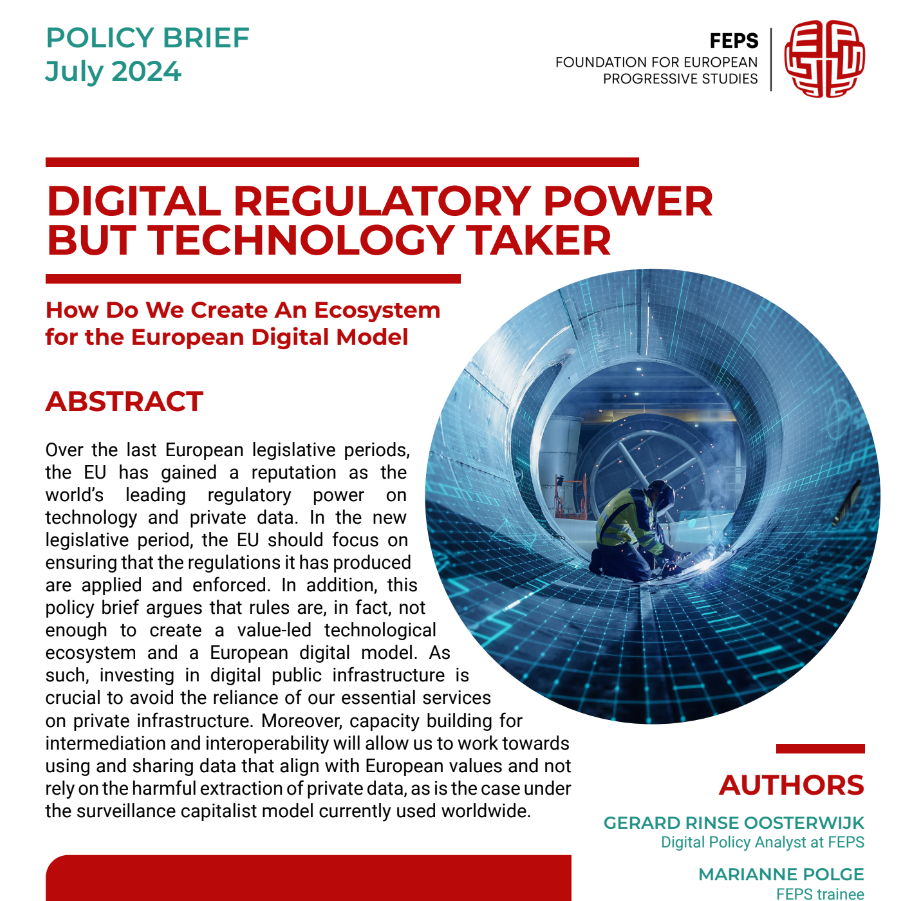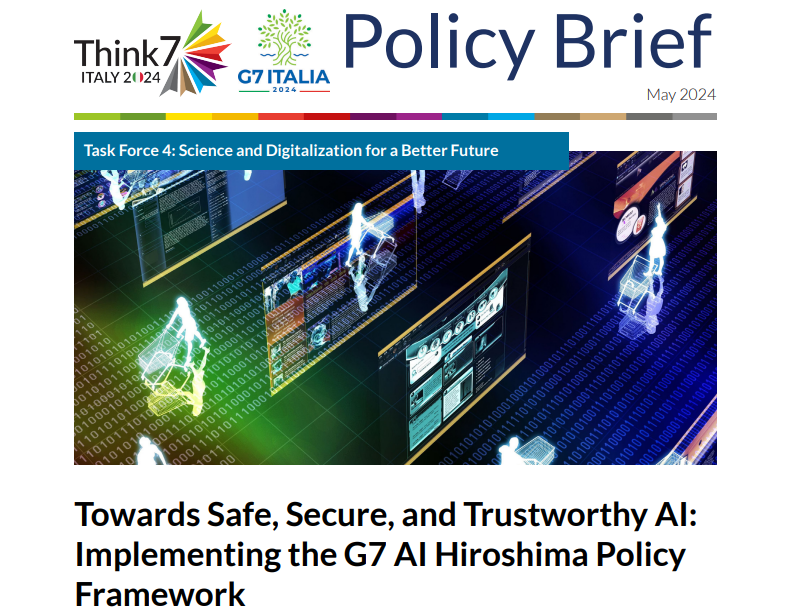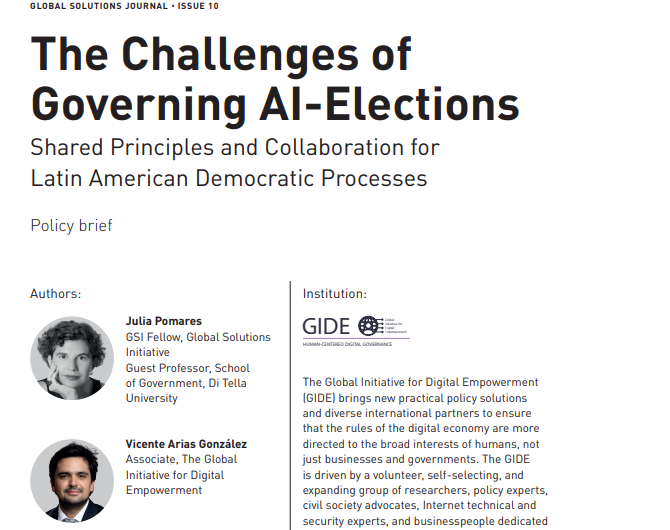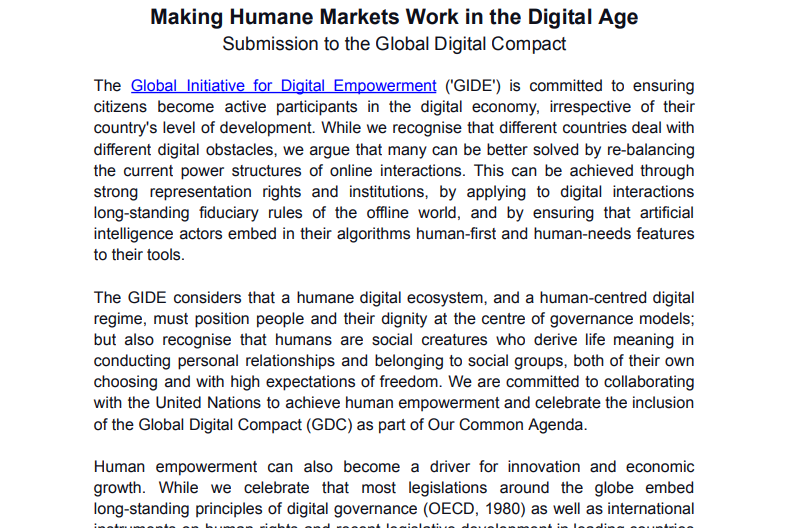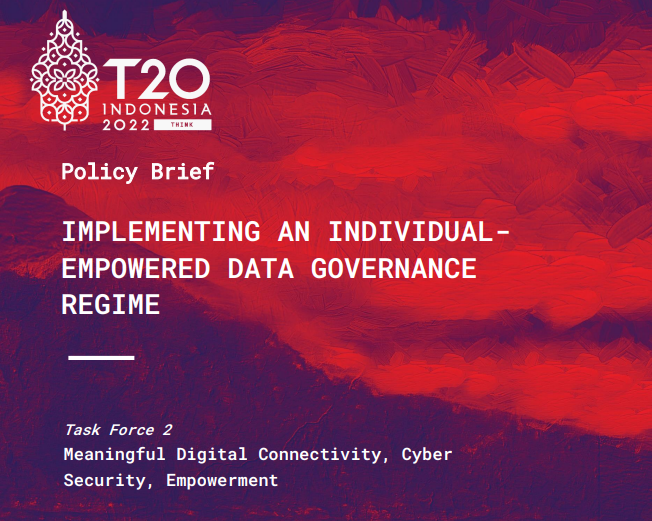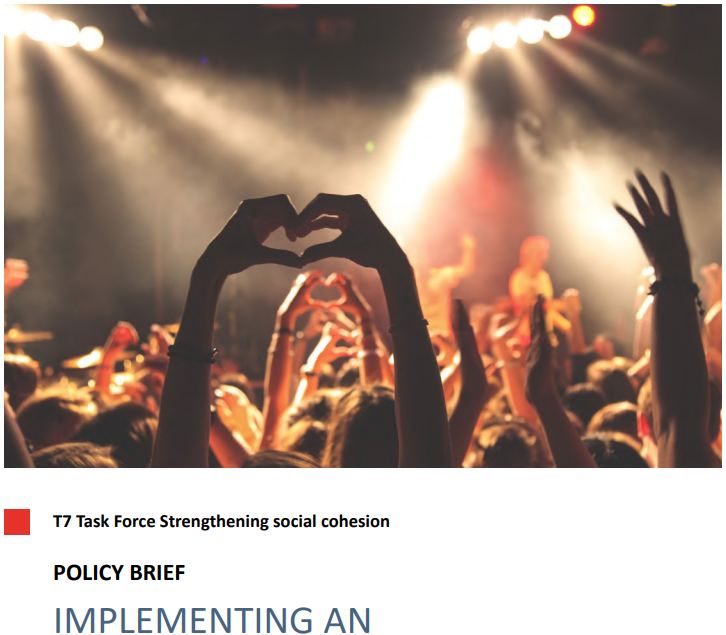policy briefs
Implementing a New Digital Competition Regime in Australia
Submission to the Australian Competition and Consumer Commission | February 2025
The GIDE’s submission highlights how giving consumers an active economic role in the digital economy can address the systemic market failures that prevent Australia from achieving fair and sustainable digital competition. It also presents the key objectives underpinning the evolution of Australia’s digital competition policy.
Collective Data Protection: Recommendations for Effective Digital Rights in the Age of AI
Africa Data Governance Hub | February 2025
This policy brief outlines practical strategies to help Citizens gain meaningful control over the processing of personal data about them and the conditions under which it occurs.
Empowering Citizens in the Digital Age: A Roadmap for Inclusive Digital Transformation
T20 Communiqué | October 2024
This recommendation roadmap recommends that the G20 adopts a digital governance regime
that achieves transparency over digital-data development and information integrity through global norms and standards that empower citizens with the necessary expert advice to control how personal data about them is used, managed, and shared.
Digital Regulatory Power but Technology Taker
FEPS Policy Brief | July 2024
This policy brief argues that rules are, in fact, not enough to create a value-led technological ecosystem and a European digital model. Investing in digital public infrastructure is crucial to avoid relying on private infrastructure for our essential services.
Towards Safe, Secure, and Trustworthy AI: Implementing the G7 AI Hiroshima Policy Framework.
G7 Policy Brief | May 2024
This brief explores potential solutions to large scale problems regarding governance, standardisation, and the development of advanced AI.
The Challenges of Governing AI-Elections: Shared Principles and Collaboration for Latin American Democratic Processes
Global Solutions Journal ∙ Issue 10 | April 2024
Governing AI is a commonplace concern among legislators and policymakers. Following the regulatory momentum of leading economies, Latin America (LATAM) is going through incipient but increasing regulatory debates on how best to regulate artificial intelligence (AI).
Making Humane Markets Work in the Digital Age
Submission to the Global Digital Compact | 2023
The Global Initiative for Digital Empowerment (‘GIDE’) is committed to ensuring citizens become active participants in the digital economy, irrespective of their country’s level of development.
The Foundation of Values and Value in the 21st Century
2023
A White Paper Based on a Summit at the Blavatnik School of Government, University of Oxford on 23rd and 24th January 2023.
T20 Policy Brief: Implementing an Individual Empowered Data Governance Regime
T20 Policy Brief | 2022
This policy brief identifies a central flaw of the current digital governance systems: the “third-party funded digital barter”. Consumers of digital services get many digital services for free (or under-priced) and in return have personal information about themselves collected for free.
Implementing an Individual-Empowered Data Governance Regime
Think7 Policy Brief | 2022
This policy brief proposes ways in which G7 governments can achieve an active market role for citizens, shifting the regulatory paradigm towards an individual-empowered, human-centered data governance regime.
